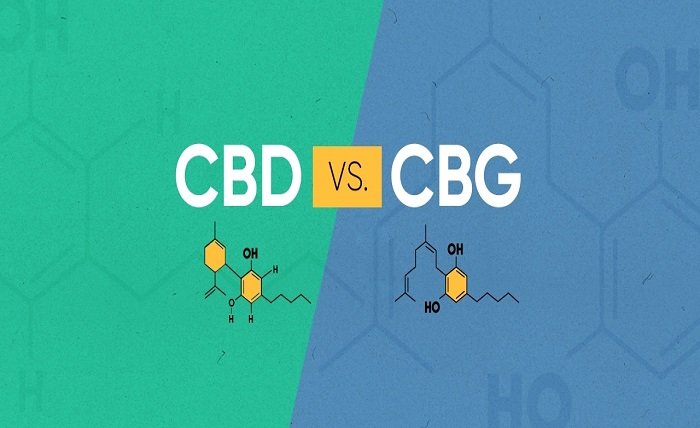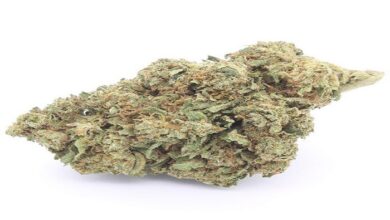CBG vs CBD: What are the Differences and Benefits of These Cannabinoids?

Cannabis is a plant that contains over 400 chemical compounds, of which more than 120 are cannabinoids. Cannabinoids are substances that interact with the endocannabinoid system, a network of receptors and molecules that regulate various functions in the body, such as mood, pain, appetite, memory, and inflammation. The most well-known cannabinoids are tetrahydrocannabinol (THC) and cannabidiol (CBD), but there are many others that have potential therapeutic effects, such as cannabigerol (CBG).
CBG and CBD are both non-intoxicating cannabinoids, meaning they do not cause a high or impair cognition. They also share some common benefits, such as anti-inflammatory, neuroprotective, and analgesic properties. However, they also have some distinct differences in their chemical structure, biosynthesis, availability, and mechanisms of action. This article will explore the similarities and differences between CBG and CBD, and their potential applications for various health conditions.
What is CBG?
CBG stands for cannabigerol, a cannabinoid that was first isolated in 1964. CBG is considered a minor cannabinoid, as it is usually present in low concentrations in most cannabis strains. However, some breeders have developed CBG-rich varieties that can contain up to 20% of this cannabinoid.
CBG is the precursor of all other cannabinoids, as it is derived from cannabigerolic acid (CBGA), the first compound that the cannabis plant produces from geranyl pyrophosphate and olivetolic acid. As the plant matures, enzymes convert CBGA into the three main cannabinoid acids: tetrahydrocannabinolic acid (THCA), cannabidiolic acid (CBDA), and cannabichromenic acid (CBCA). These acids then undergo decarboxylation, either by heat or time, to produce THC, CBD, and CBC, respectively. A small amount of CBGA remains unchanged and becomes CBG after decarboxylation.
CBG interacts with both the CB1 and CB2 receptors of the endocannabinoid system, but with a low affinity. It also influences other receptors that modulate pain, inflammation, and temperature sensitivity, such as TRPV1, TRPA1, and TRPM8. Additionally, CBG may inhibit the uptake of certain neurotransmitters, such as serotonin and gamma-aminobutyric acid (GABA), which can affect mood and anxiety.
What is CBD?
CBD stands for cannabidiol, a cannabinoid that was first isolated in 1940. CBD is one of the most abundant cannabinoids in cannabis, especially in hemp varieties that contain less than 0.3% THC. CBD can also be extracted from other sources, such as hops or yeast.
CBD is derived from CBDA, which is produced from CBGA by the enzyme CBDA synthase. CBD does not directly bind to the CB1 or CB2 receptors of the endocannabinoid system but rather modulates their activity by acting as an allosteric modulator. This means that CBD can change the shape of these receptors and affect how other cannabinoids bind to them. For example, CBD can reduce the psychoactive effects of THC by inhibiting its binding to the CB1 receptor.
CBD also interacts with other receptors and channels that are involved in various physiological processes, such as serotonin receptors (5-HT1A), opioid receptors (mu and delta), glycine receptors (alpha-3), peroxisome proliferator-activated receptors (PPARs), nuclear factor kappa B (NF-kB), and adenosine receptors (A2A).
What are the similarities between CBG and CBD?
CBG and CBD have some common characteristics that make them attractive for medical use. Some of these are:
- They are both non-intoxicating and do not cause euphoria or impairment.
- They both have anti-inflammatory effects that can help reduce swelling, pain, and redness.
- They both have neuroprotective effects that can help prevent or delay neuronal damage and degeneration.
- They both have analgesic effects that can help relieve pain and discomfort.
- They both have antioxidant effects that can help protect cells from oxidative stress and free radical damage.
- They both have anti-tumor effects that can help inhibit the growth and spread of cancer cells.
- They both have anti-anxiety effects that can help reduce stress and fear.
- They both have anti-depressant effects that can help improve mood and well-being.
What are the differences between CBG and CBD?
CBG and CBD also have some distinct differences that make them suitable for different purposes. Some of these are:
- CBG is more scarce than CBD in most cannabis strains, making it more expensive and harder to obtain.
- CBG is more potent than CBD in some aspects, such as stimulating appetite, reducing intraocular pressure, and fighting bacterial infections.
- CBG is more selective than CBD in some aspects, such as blocking the CB1 receptor, inhibiting the enzyme that breaks down anandamide, and activating the alpha-2 adrenergic receptor.
- CBG is more effective than CBD in some conditions, such as Huntington’s disease, Parkinson’s disease, multiple sclerosis, and inflammatory bowel disease.
- CBD is more effective than CBG in some conditions, such as epilepsy, schizophrenia, diabetes, and skin disorders.
Can CBG and CBD be taken together?
CBG and CBD can be taken together to enhance their effects and benefits. This is because they have a synergistic relationship, meaning that they can work better together than separately. This is also known as the entourage effect, which refers to the phenomenon that the whole cannabis plant is more effective than its isolated components.
Some of the advantages of taking CBG and CBD together are:
- They can balance each other’s effects and reduce potential side effects. For example, CBG can counteract the sedative effects of CBD and CBD can counteract the appetite-stimulating effects of CBG.
- They can boost each other’s bioavailability and absorption. For example, CBG can increase the permeability of the blood-brain barrier and CBD can increase the solubility of CBG in water.
- They can target different receptors and pathways to achieve a broader spectrum of action. For example, CBG can activate the TRPV1 receptor and CBD can activate the 5-HT1A receptor to produce anti-inflammatory and anti-anxiety effects.
Conclusion
CBG and CBD are both non-intoxicating cannabinoids that have various therapeutic properties. They share some common benefits, such as anti-inflammatory, neuroprotective, analgesic, antioxidant, anti-tumor, anti-anxiety, and anti-depressant effects. However, they also have some distinct differences, such as their availability, potency, selectivity, and effectiveness for different conditions. Taking CBG and CBD together can enhance their effects and benefits by creating a synergistic relationship. Therefore, CBG and CBD are both valuable cannabinoids that can offer relief and improvement for many health issues.



